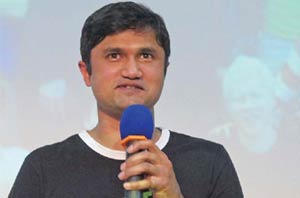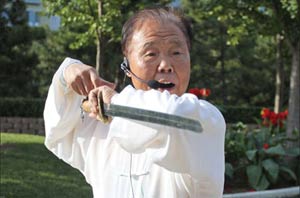Learning is a two-way process
Updated: 2011-10-14 07:56
By Chen Weihua (China Daily)
|
|||||||||
For more than three decades, China has looked up to and learnt from the West in its drive to catch up with the rest of the world. Quite a few even believe that the country has everything to learn from the West while the West has nothing to learn from China.
But that should not be the case today, at least according to Loretta Napoleoni, author of the new book, Maonomics: Why Chinese Communists Make Better Capitalists Than We Do.
In a talk at the China Institute in New York this week, Napoleoni claims the West has a lot to learn from the Chinese model. She describes the Western system as now obsolete and old and out of sync with globalization.
In Napoleoni's view, China has handled the process of globalization much better than Western nations. It is wrong for the West to leave everything to the market in a globalized world.
The Italian economist argues that China's transformations are not limited to reshaping the economy according to the principles of free trade, but also in the social and political arenas.
One of the world's leading experts on money laundering and terror financing, Napoleoni admits she is not a China specialist and it is not a book about China, but about the world we are living in. She wants to use China as a benchmark to analyze the shortcoming of Western capitalism and she finds many.
She criticizes the West for constantly expecting China to fail and blaming all its problems on China and praises China's success in poverty reduction. She says that the Chinese government has been much better in keeping the social contract with the people than many Western governments. China is giving the world the opportunity to have a new economic and political model, which can give birth to a new world order, she says.
However, it is wrong for Napoleoni to say that China benefits more than the West from globalization. Statistics show that the Western multinationals grab most of the profits while Chinese manufacturers receive only a meager share and China has inherited all of the environmental damage.
Also, while China's progress has been phenomenal, the challenges it faces are still many and serious. In many ways, these challenges are far greater for China, which is still developing, than those facing the developed Western nations.
Nevertheless, Napoleoni is right in pointing out that every nation has something to offer. This includes the China miracle.
There is no doubt that the West, which likes to tout the superiority of its political and economic system, is now in deep trouble with its debt crises, high unemployment, nasty politics, corruption and social unrest.
The grass-roots Occupy Wall Street movement in New York's financial district is just the latest example.
In just four weeks, it has spread to hundreds of cities in the United States and around the world. The movement has become so powerful that few news media today can afford to ignore or purely deride as they did in the first two weeks.
The message from the protesters is clear. They are deeply frustrated with the widening gap between the rich and the poor and an increasingly dysfunctional system where political parties care more about votes than the good of the people and the fact that the changes promised by politicians are all too often not delivered.
What all these mean is that China should not learn blindly from the West. But that does not mean we have nothing to learn from the West. Our thirst in learning from the rest of the world has been a key feature of the China miracle. We should never let it up.
The author, based in New York, is deputy editor of China Daily US edition. E-mail: chenweihua@chinadaily.com.cn









